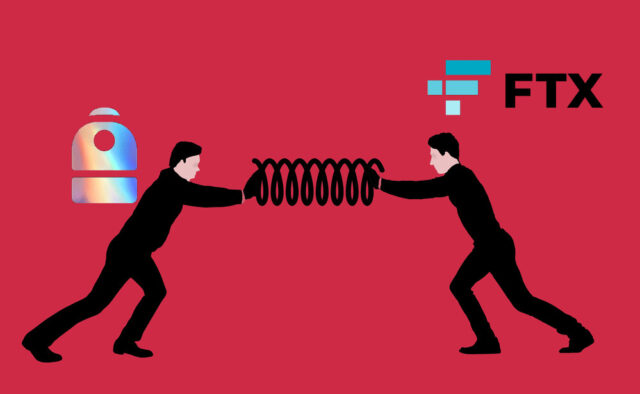Backpack Exchange has unveiled bold ambitions to revive the European cryptocurrency market following its acquisition of FTX EU, the European subsidiary of the bankrupt FTX platform. By leveraging FTX EU’s MiFID II license, Backpack seeks to reintroduce regulated cryptocurrency derivatives, such as perpetual futures, to traders in Europe. However, the road ahead is far from smooth. However, the transaction has become a focal point of legal and regulatory scrutiny. FTX bankruptcy estate is challenging the legitimacy of the acquisition, raising concerns about the handling of customer funds.
Ambitious Plans for European Expansion
Backpack Exchange, founded by former FTX and Almeda Research employees, acquired FTX EU for $32.7 million. They positioned the purchase as a strategic move to establish a strong foothold in Europe. The acquisition includes the MiFID II license, which enables them to offer regulated financial products. That is a rarity in the largely unregulated crypto trading landscape.
“We believe this acquisition positions us to provide safe, regulated access to cryptocurrency derivatives,” a representative for Backpack stated. It emphasizes the potential to rebuild trust in a market shaken by the collapse of FTX. The exchange also committed to a court-supervised claims process to ensure former FTX EU customers receive restitution.
The Conflict Over Legitimacy
Despite Backpack’s optimism, the FTX bankruptcy estate has questioned the transaction. According to the estate, the sale was unauthorized and conducted without prior approval from the U.S. Bankruptcy Court. They argue that any changes in ownership or management require explicit court consent. Further, they have warned that Backpack cannot legally distribute funds to FTX EU’s customers.
In response, Backpack claims the deal adhered to all regulatory requirements. They point to approvals from the Cyprus Securities and Exchange Commission (CySEC) and German court documentation as evidence of its legitimacy. CySEC has acknowledged the transaction but maintains that FTX EU’s license remains suspended. That prevents the entity from onboarding new clients or providing investment services.
Regulatory and Operational Challenges
Backpack’s primary hurdle is the reactivation of FTX EU’s MiFID II license, which has been suspended by CySEC since the collapse of its parent company. Under current conditions, FTX EU is limited to facilitating the return of funds to existing clients. Its operational future hinges on regulatory approval.
Experts in the field note that the reactivation process will likely face significant scrutiny. Regulators will evaluate Backpack’s ability to comply with stringent European financial rules, as well as its capacity to safeguard customer funds and maintain transparency in its operations. The company has indicated it hopes to resume full operations in Q1 2025. However, achieving this timeline depends heavily on regulatory green lights.
Implications for Customers and the Market
One of the central issues in the dispute is the handling of customer restitution. Backpack has pledged to return funds to former FTX EU customers through a structured bankruptcy claims process. However, the FTX bankruptcy estate has expressed concerns over the lack of transparency and legal clarity surrounding this promise.
If successful, Backpack’s revival of FTX EU could mark a significant milestone for the crypto market in Europe. By reintroducing regulated crypto derivatives, the company aims to attract institutional and retail traders seeking a compliant and secure trading environment. This would provide a much-needed boost to the reputation of cryptocurrency exchanges, particularly in light of the scandals that have plagued the industry in recent years.
Broader Implications for the Crypto Industry
The ongoing conflict underscores the complexities involved in acquiring distressed crypto assets, particularly entities under regulatory oversight. It also highlights the challenges of balancing customer protection, regulatory compliance, and business innovation in a volatile and fast-evolving industry.
Backpack’s success – or failure – in overcoming these challenges will set a precedent for how the crypto industry navigates future acquisitions of bankrupt entities. As the European market looks for stability and growth, all eyes are on Backpack to see if it can turn FTX EU into a blueprint for a regulated and trustworthy crypto trading platform.
Backpack’s acquisition of FTX EU is a bold move that promises to reshape Europe’s crypto trading landscape but comes with significant hurdles. As legal disputes and regulatory challenges mount, the future of the deal remains uncertain. Yet, if Backpack manages to fulfill its vision, it could set a new standard for transparency and compliance in the cryptocurrency industry. Can they restore the faith in a market still reeling from the fallout of FTX’s collapse?
Readers’ frequently asked questions
What is MiFID II, and why is it important for FTX EU’s revival?
MiFID II, short for the Markets in Financial Instruments Directive II, is a set of regulations introduced by the European Union to enhance transparency, investor protection, and the overall integrity of financial markets. For cryptocurrency exchanges like FTX EU, possessing a MiFID II license means they can legally offer financial products like derivatives, including perpetual futures, in Europe. This is significant because regulated offerings build trust among institutional and retail investors, particularly after scandals like FTX’s collapse. Without an active MiFID II license, FTX EU cannot operate fully. Hence, its suspended status remains a major hurdle for Backpack’s plans to restore the platform.
What does the suspension of FTX EU’s license mean for customers?
The suspension of FTX EU’s license by the Cyprus Securities and Exchange Commission (CySEC) restricts the entity from onboarding new clients or offering any investment services. However, it does allow the company to facilitate refunds to existing clients who were affected by FTX’s collapse. For customers, this means they cannot yet use the platform for trading or investing. Nevertheless, they can potentially recover funds through the structured claims process Backpack has promised to implement. It’s important to note that reactivating the license is critical for FTX EU’s ability to resume operations and for Backpack’s broader expansion plans for Europe.
How does the dispute between Backpack and the FTX bankruptcy estate affect customers?
The dispute between Backpack and the FTX bankruptcy estate centers on the legality of Backpack’s acquisition of FTX EU and its authority to manage customer funds. If the court rules that the sale was unauthorized, it could delay the restitution process for former FTX EU customers. Likely, additional legal proceedings might be required to resolve the matter. Customers should stay informed about the court’s decisions. These rulings will determine whether Backpack can follow through on its commitments. In the meantime, customers may need to monitor official updates and ensure they participate in any court-sanctioned claims process to recover their funds.
What Is In It For You? Action Items You Might Want to Consider
Stay Updated on FTX EU’s Licensing Status
Keep an eye on announcements from the Cyprus Securities and Exchange Commission (CySEC) and Backpack Exchange regarding the reactivation of FTX EU’s MiFID II license. The timeline for Backpack’s planned operations depends heavily on this regulatory approval. It will determine when and if the platform can offer regulated crypto derivatives in Europe. Knowing when these changes occur could help you plan your trading strategies or explore new opportunities.
Evaluate the Risks of Using FTX EU Under New Ownership
If you’re considering trading on FTX EU once it resumes operations, take time to assess the platform’s compliance with regulatory standards and the security of its offerings. Backpack Exchange promises a compliant and trustworthy environment, but due diligence is crucial. Look for clear communication about fund safety, the claims process for former FTX customers, and how the platform plans to avoid past pitfalls.
Explore Alternative Regulated Platforms While Waiting
Given the suspension of FTX EU’s license, consider exploring other regulated cryptocurrency exchanges for your trading needs. Platforms with active licenses under MiFID II or similar regulatory frameworks can provide a safer and more transparent trading environment in the interim. Staying active in the market while waiting for FTX EU’s reactivation ensures you don’t miss out on opportunities in the fast-moving crypto space.










